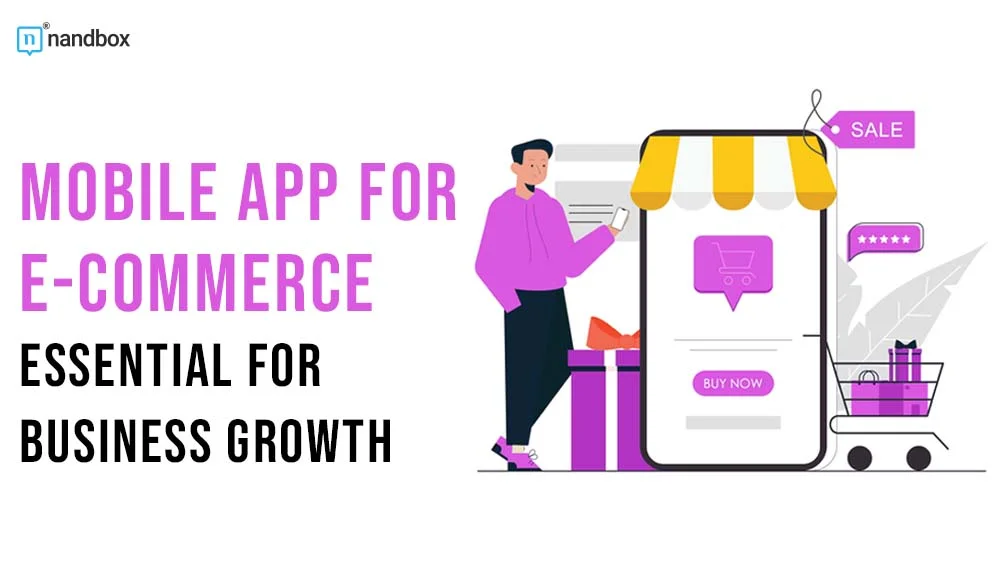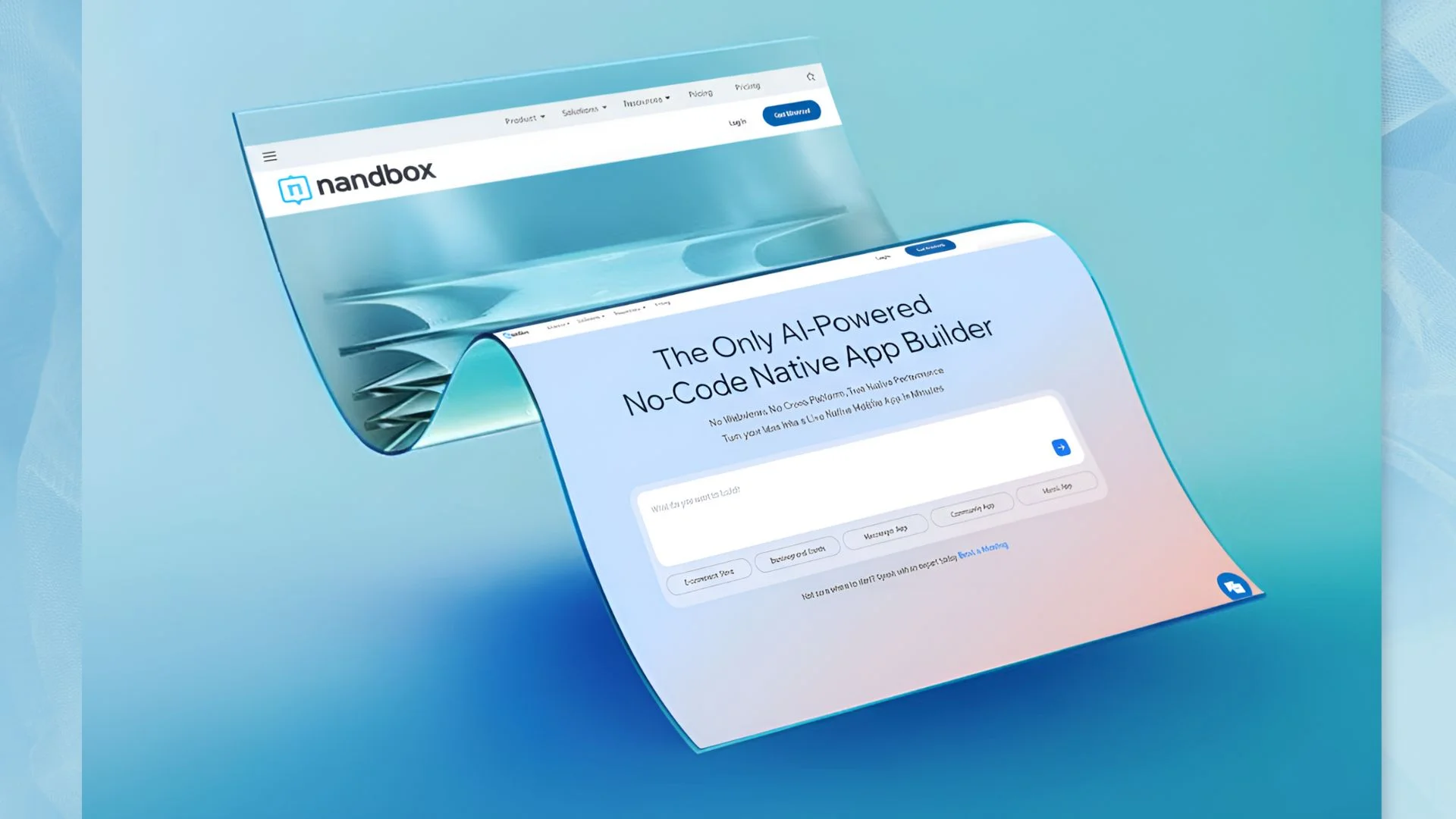Imagine this: You have a successful e-commerce business, sales are stable, and your website is doing well. Lately, though, you’ve noticed something. An increasing portion of your shoppers are browsing and buying from their mobile devices. You aren’t the only one making that observation. The e-commerce industry is changing, and mobile commerce is leading the charge in that change. The mobile-friendly website is a thing of the past. Your customers want convenience, speed, and personalization. That is where a mobile app steps in. A mobile application is not a trendy addition to your business but something that has slowly become a must if one wants to stay competitive and fulfill the expectations of their customers. This post shows why you need a mobile app for your e-commerce business and how it can revolutionize your digital strategy.
What is the Importance of a Mobile App for E-commerce Businesses?
Before we proceed to the specific reasons why your e-commerce business needs a mobile application, let’s take a step back and discuss the bigger picture at hand. The role of mobile applications in e-commerce cannot be overemphasized, and it all starts with a massive shift in customer behavior. Remember when people shopped online through a desktop computer? Those days are long gone.
Mobile E-commerce Apps
Today, your customers are reaching out to their smartphones to look up, compare, and buy products, especially on dropshipping websites where convenience and fast transactions are paramount. As a matter of fact, by 2027, more than 62% of all e-commerce sales are expected to take place using mobile devices. This is a big piece of potential sales that you can capture with a mobile app. And it’s not only part of following the rest. A mobile app does not provide what the most mobile-friendly website offers: a better user experience.
Think about it. When you’re using a nice, nifty application, everything seems so smooth, right? This is because applications are intended to be used on mobile devices. This makes navigation easy, loading faster, and interfaces suited for small screens. Furthermore, in the overcrowded e-commerce marketplace, mobile applications prove to be a great advantage. It shows that you are forward-thinking and really committed to the cause of providing better customer service. When a potential customer is deciding between your brand and a competitor’s, the presence of a user-friendly mobile app could be the factor that tips the scales in your favor.
10 Reasons Why Your E-commerce Business Needs a Mobile App
Now that we have covered the general importance of mobile apps toward e-commerce, let’s break down the specific reasons your business needs one. Here are ten compelling reasons that prove how mobile apps transform your e-commerce strategy.
-
Increased Customer Engagement
Imagine a direct line to your customer, always at your disposal. That is what any mobile app is going to give you. At the same time, you can send real-time updates with features like push notifications, special offers, or reminders directly to prospects’ phones. It’s something like tapping them on the shoulder to say, “Hey, check this out!”
It also gives rise to new channels of two-way communication. Customers can easily contact you for any inquiries, support, or feedback through the in-app messaging features. The constant connection helps build better relations between your brand and your customers.
On the other hand, mobile apps provide you with the ability to offer customized content for your users. You could also use an AI copywriter to create this customized content. You can customize the app experience for each particular user based on his browsing history, purchase behavior, or preferences. This much personalization achieved by the latter makes your customers feel special and understood enough to delve deeper into the brand.
-
Enhanced Brand Recognition and Visibility
On average, a person checks their phone 96 times a day. That is 96 times your brand could flash before their eyes. With your application installed on the customer’s phone, the icon of your brand is right there on the screen of their home. It is almost like having a teeny-weeny ad billboard in someone’s pocket reminding them of your brand with every phone use. But it does not end here. A mobile application multiplies the number of touchpoints you have with customers: logging on to track an order, looking at new products, or using a feature unique to your app—they all add up. Every time they do, you reinforce your brand in their minds.
-
Higher Conversion Rates
Now, down to business—after all, the result of your e-commerce efforts is to make sales, right? This is where mobile apps shine. They’re designed to facilitate the buying process in as seamless a way as possible, which typically translates into a better conversion rate than mobile websites.
Think back to the last time you tried to make a purchase on a mobile website. You likely had to zoom in and jab your thumb at tiny form fields, manually input your shipping and payment information, and cycle through numerous pages. It doesn’t make for a great user experience, does it? Now, contrast that to a well-designed mobile app. Checkout is much faster—often just a few taps. Payment and shipping information can be stored inside the app securely, eliminating the need to type this all out over and over again.
Some apps add in one-click purchasing options that make it dangerous for impulse buys—for the customer at least, that’s good news for you! This is an easier process that decreases cart abandonment and increases completed purchases.
-
Valuable Customer Insights
Knowledge is power, especially when it comes to e-commerce. A mobile app can act as a goldmine of customer data, providing you with insights that may be leveraged in company strategies that improve your offering. You will be able to trace user behavior in great detail using an app. Which products do they view most often? How much time do they spend on browsing? What features do they use most frequently? This could foster a deeper understanding of their preferences and habits.
Through an app, you will be better placed to analyze purchase history. You can know the trends, know the products that are popular for this or that segment, and even predict future buying behavior. Remember, the objective is not only to collect data but to use it to better serve your customers. These are the insights you could derive from your mobile app to drive smart decisions across inventory, marketing, and product development.
-
Omnichannel Shopping Experience
These days, customers want a seamless experience across all channels, whether they are in-store, on your website, or in your mobile app. This is where the term omnichannel shopping comes into play, and a mobile app is one very essential part of this puzzle.
This could be done through a mobile application that links your online and offline presence. Customers may check the availability of a product at a store or scan items in a physical store to learn more about it. This makes shopping easy for customers, with the ability to do so in whatever way feels most convenient at any given time. By providing a unified customer experience across all channels, you are not only making shopping easier; you are also building a much stronger brand image that reflects cohesiveness. Your customers will learn to view your brand as something reliable and focused on them, no matter how they want to engage with you.
-
Offline Accessibility
Consider this scenario: a customer is browsing your products during their daily commute, but they enter a tunnel and lose internet connectivity. On a website, that probably would have broken the shopping experience. But with a mobile app? Not necessarily.
Another very unique property of a mobile application is that it can be accessed offline. This means that some of the functionality and information can be accessible to the user when he has no Internet connection. For example, you might cache product information so they can browse items while offline. This would simply imply that it is also an essential offline accessibility feature, where all your customers’ attention is turned toward your brand, even when it’s not connected. It shows you can read and cater to their needs in less-than-ideal circumstances.
-
Improved Customer Support
Last but certainly not least, customer support in the E-commerce sector can make or break your business. A mobile app can be a very powerful tool for giving fast and efficient support to customers. One of the handiest features is in-app live chat support. This allows customers to seek support without ever having to leave the application, thereby making the process much more easy. They don’t have to switch to email or call them; they get help where they are. Taking this one step ahead, many e-commerce apps now integrate AI-based chatbots. Such bots can instantly reply to frequently asked queries and questions around the clock. While they cannot fully replace human support, they can still process a decent percentage of customer inquiries, freeing your support team to handle more significant and complex issues.
Offering a couple of support options in your e-commerce mobile app ensures that customers can receive help the moment they need it. This may lead to greater satisfaction among customers, increased confidence in your brand, and finally, more loyal customers.
Conclusion
A mobile app isn’t about keeping up with the trends—it’s about preparing for the future of e-commerce. This is about engaging customers where they are and offering the best shopping experience. This creates closer connections with customers and turns the casual shopper into a very loyal brand advocate. If you have not done so already, now is the time to get serious about an e-commerce mobile application for your business. Yes, maybe at the start there will be some investment involved with the process. But long-term benefits come just tremendously in terms of customer engagement, sales, and brand loyalty. If you want to create ane-commerc app but don’t know how to code, then nandbox is your go-to solution.
nandbox no-code native app builder allows you to create fully native iOS and Android shopping apps with zero coding needed. On top of that, nandbox offers pre-made app templates, including pre-made e-commerce app templates. Moreover, nandbox offers affordable pricing plans where you can create fully native iOS and Android e-commerce apps for less than $100. So what are you waiting for? Sign up now and create native iOS and Android apps with no coding!
How to Create an E-Commerce App Using ChatGPT without Coding On a Budget
Ever wondered how to create an e-commerce app using ChatGPT? With nandbox App Builder GPT, you can build both iOS and Android native apps using ChatGPT without coding. Just describe what you want in ChatGPT, and once you finish the conversation, the GPT instantly gives you a direct link to nandbox, where your shopping app is already generated and ready to be customized or published.






